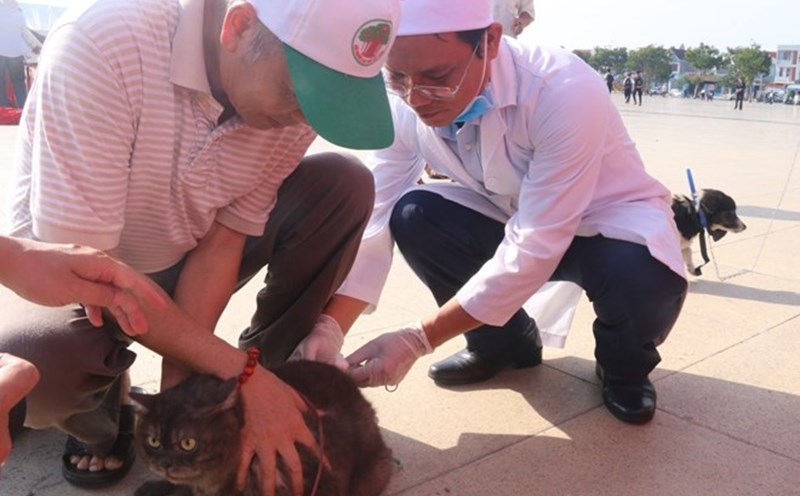According to the family, about 6 months ago, Mr. D was bitten by a dog at the same time as his sister-in-law, niece and a neighbor. However, he was the only person who was not vaccinated against rabies after being exposed. Three days before being hospitalized, he began to show typical neurological symptoms of rabies: agitation, fear of water, fear of light. After a day of treatment at a local medical facility but no improvement was achieved, he was transferred directly to the Central Hospital for Tropical Diseases.
Here, the doctor noted that the patient had a high fever, signs of infection, stiff neck - suggesting damage to the central nervous system. There were many blood stains on the back due to the family's previous high wind application. The breathing quickly became severe, the lungs on both sides appeared scattered damp rales, forcing him to maintain mechanical ventilation. The results of the melasma test showed increased pressure and tested positive for the rabies virus. After the results confirmed rabies, the family asked to take the patient home for care.
MSc. Dr. Truong Tu The Bao - Emergency Department said: This is an extremely unfortunate case. Although bitten by a dog 6 months ago, not getting vaccinated after exposure puts the patient in a dangerous condition. The rabies virus can last for weeks to months, but once it has spread, it is almost impossible to cure.
Doctor Bao further warned: anyone who is bitten, scratched, or licked by a suspected rabid animal - especially if it is a dog or cat of unknown origin - needs to be vaccinated against rabies immediately. For severe wounds, many bites or bites in dangerous areas such as head, face, neck, arms, legs, genitals, etc., the doctor will prescribe additional anti-rabies serum injections. Rabies can silently persist for many months, but when it does, the mortality rate is almost 100%. Early vaccination is the only way to protect life. Absolutely do not apply medicine, leaves or use folk tips because it can cause infection and reduce treatment effectiveness. Just a little bit of subjectivity can cost you your life.
According to the Department of Prevention and Control (Ministry of Health), rabies is still among the most dangerous infectious diseases in the world, killing about 13,743 people each year, of which 40% are children under 15 years old.
In Vietnam, in the first 10 months of 2025, 67 deaths from rabies were recorded, a slight decrease compared to the same period in 2024, but still most concentrated in the Central Highlands provinces. Rabies causes economic losses of more than VND1,000 billion per year for vaccine, serum and indirect medical costs, while leaving serious consequences for psychology and social order. The situation of dogs playing free and trading and slaughtering dogs and cats uncontrollably continues to increase the risk of spreading the disease.











